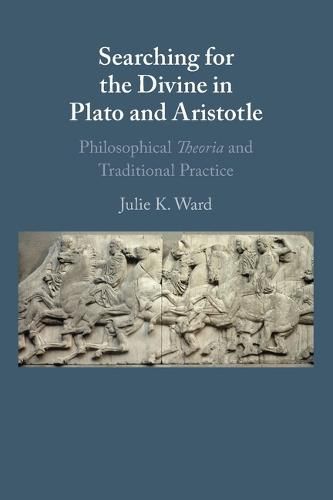Readings Newsletter
Become a Readings Member to make your shopping experience even easier.
Sign in or sign up for free!
You’re not far away from qualifying for FREE standard shipping within Australia
You’ve qualified for FREE standard shipping within Australia
The cart is loading…






To scholars of ancient philosophy, theoria denotes abstract thinking, with both Plato and Aristotle employing the term to signify philosophical contemplation. Yet it is surprising for some to find an earlier, traditional meaning referring to travel to festivals and shrines. In an attempt to dissolve the problem of equivocal reference, Julie Ward's book seeks to illuminate the nature of traditional theoria as ancient festival-attendance as well as the philosophical account developed in Plato and Aristotle. First, she examines the traditional use referring to periodic festivals, including their complex social and political arrangements, then she considers the subsequent use by Plato and Aristotle. Broadly speaking, she discerns a common thread running throughout both uses: namely, the notion of having a visual experience of the sacred or divine. Thus her book aims to illuminate the nature of philosophical theoria described by Plato and Aristotle in light of traditional, festival theoria.
$9.00 standard shipping within Australia
FREE standard shipping within Australia for orders over $100.00
Express & International shipping calculated at checkout
To scholars of ancient philosophy, theoria denotes abstract thinking, with both Plato and Aristotle employing the term to signify philosophical contemplation. Yet it is surprising for some to find an earlier, traditional meaning referring to travel to festivals and shrines. In an attempt to dissolve the problem of equivocal reference, Julie Ward's book seeks to illuminate the nature of traditional theoria as ancient festival-attendance as well as the philosophical account developed in Plato and Aristotle. First, she examines the traditional use referring to periodic festivals, including their complex social and political arrangements, then she considers the subsequent use by Plato and Aristotle. Broadly speaking, she discerns a common thread running throughout both uses: namely, the notion of having a visual experience of the sacred or divine. Thus her book aims to illuminate the nature of philosophical theoria described by Plato and Aristotle in light of traditional, festival theoria.